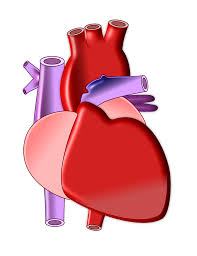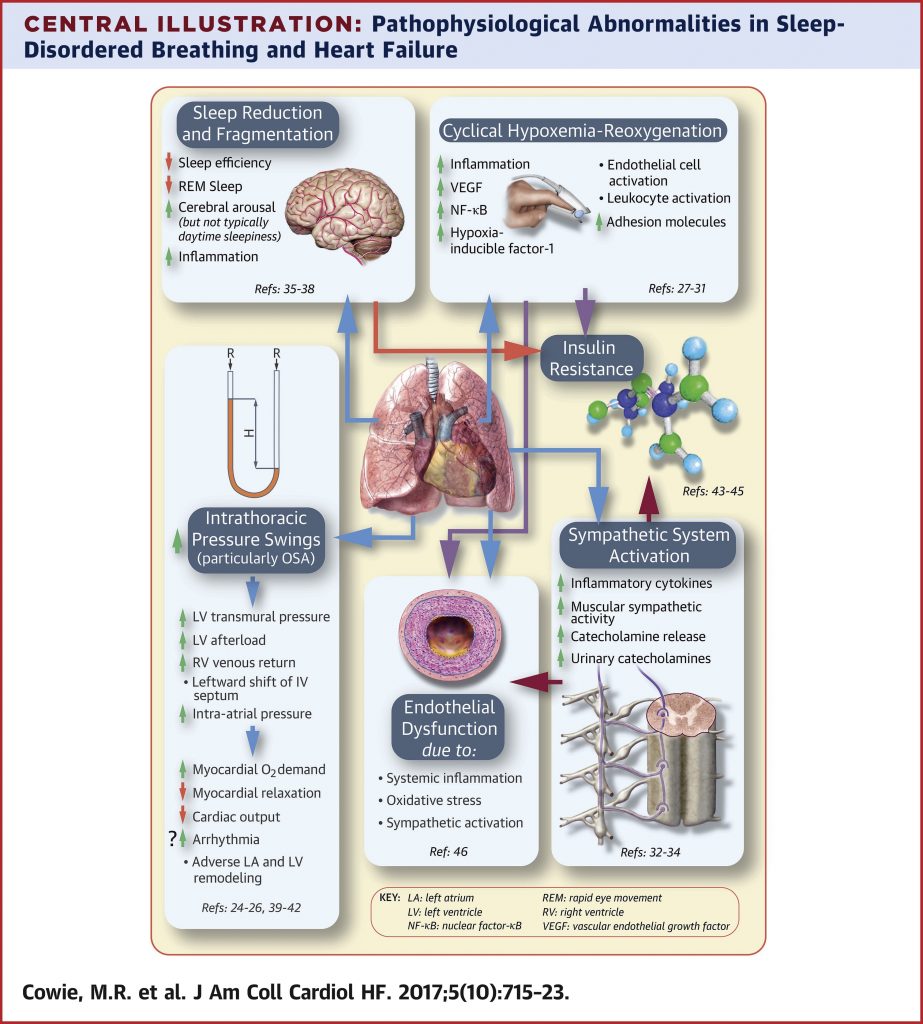
26 Jul Heart failure and sleep disorders
Patients with heart failure (HF) are characterised by relevant problems during sleep, including short sleep time, low sleep quality, and sleep-disordered breathing.
These patients with chronic sleep deprivation are more likely to develop hypertension, diabetes, depression, heart failure, or arrhythmias and experience increased mortality or decrements in quality of life and productivity.
Sleep-disordered breathing (SDB) is highly prevalent in patients with HF; both central and obstructive sleep apnoeas are frequently observed in these patients, and were shown to have an important added prognostic value.
SDB has many consequences for the cardiovascular system. In addition to SNA, oxidative stress, systemic inflammation, and endothelial dysfunction are seen. Intermittent hypoxemia and hypercapnia decrease oxygen delivery throughout the body, leading to organ dysfunction.
SDB has been identified as an independent risk factor for hypertension and is a serious risk factor for other cardiovascular diseases, such as atrial and ventricular arrhythmias, stroke, coronary artery disease, sudden cardiac death, and Heart Failure.
HF treatment can decrease the severity of both OSA and CSA using furosemide and spironolactone administration, exercise training, cardiac resynchronization therapy, and eventually heart transplantation. Continuous positive airway pressure has a beneficial effect on left ventricular ejection fraction and is currently the best treatment option for obstructive sleep apnoeas in patients with HF.
Parati G, Lombardi C, Castagna F, et al. (2016). Heart failure and sleep disorders. Nat Rev Cardiol. 2016 Jul;13(7):389-403. doi: 10.1038/nrcardio.2016.71


